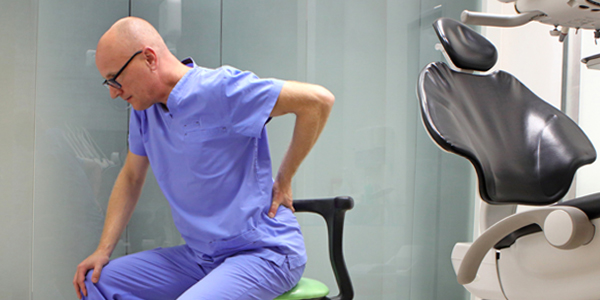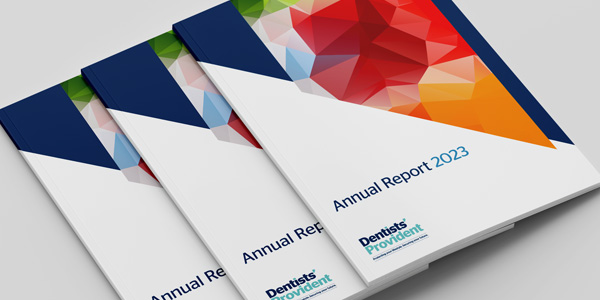
A record 185.6 million working days were lost because of sickness or injury in 2022 and just over ten percent of the absences related to musculoskeletal problems1.
New figures released by the Office of National Statistics (ONS), show that the percentage of working hours lost because of sickness or injury rose to 2.6% in 2022, the highest it has been since 2004, when it was 2.7%1.
Minor illnesses were the most common reason for sickness absence in 2022, accounting for 29.3% of all absences. This was followed by "other" conditions at 23.8%, musculoskeletal problems at 10.5%, respiratory conditions at 8.3% and mental health conditions at 7.9%1.
Figures also show that sickness absence rose for all age groups in 2022 and the absence rates were highest within the ‘caring leisure and other service occupations’ major occupations category.
Claims statistics from Dentists’ Provident somewhat echo the ONS findings. In 2022 one of the profession’s leading income protection providers paid out £5.6m to members. Musculoskeletal disorders (MSK) were the second highest reason for claims (23%).
MSK claims were more prevalent in females, accounting for 29% of the total claims paid to women. The comparative figure for men was 17%2.
According to the World Health Organization approximately 1.71 billion people have musculoskeletal conditions worldwide, with lower back pain the biggest contributor to the overall burden of musculoskeletal conditions3.
Prolonged static and awkward work involved in patient care, makes dental professionals very vulnerable to MSK complaints4. Not surprisingly, work-related musculoskeletal disorders have historically been one of the main reasons for long and short term ill-health amongst dentists. Studies show that, sadly, the most frequent cause of premature retirement in dentistry of those in the 50+ age group was musculoskeletal disorders6.
The most common conditions affecting dentists include back and neck issues, while hand and wrist complaints were the most common amongst dental hygienists5.
Dentists’ Provident works with specialist rehabilitation clinicians such as Alex Freeman, a Vocational Rehabilitation Consultant to support claimants affected by issues such as MSK disorders.
With a background in nursing, Alex Freeman has spent over a decade working with the dental profession, helping with prevention and supporting individuals return to work.
“Dentists have a physical role, and while they don’t do heavy manual work, they are often in awkward postural positions for prolonged periods during a working day. Muscular conditions have a wide ranging impact, so it is important to think about the many different ways the condition impacts that individual and how best to support them. It’s about not lumping everyone with back pain, rheumatoid arthritis or other conditions in the same box, instead it is vitally important to explore with the individual, the nature and cause of any personal barriers,” she says.
“It is important to look at everything holistically – from how they practice, the surgery set-up, their workload, to their physical condition and psychological response – as well as their functioning outside of work, which has a real impact on their professional life. Activity is good for musculoskeletal pain – keep moving and stay active, think of your posture, how you are working and your interactions with the wider team.”
Alex says nobody should be in postural stress all day long and every 30-40 minutes we should get up, stretch and move around. “Dentists are no different. They obviously can’t get up and stretch mid-way through seeing a patient, but it’s about being aware, thinking about the number of patients you are seeing, and giving your musculoskeletal system a little rest,” she says.
Alex explains, that in her experience of dentists, many of whom are SME owners, injuries can feel particularly challenging due to the absence of formal occupational health support systems and the potential loss of income; yet small changes can make a huge difference.
“There was one instance of a dentist reorganising their surgery after having severe back issues. Re-equipping the surgery with equipment that supported their postural health, changed their life completely. But sometimes just a few minor adjustments to how you work - something as simple as ensuring you adjust your chair, can mean you can work sustainably. Doing physio exercises, going to the gym and other things that strengthen your back can make huge differences – especially to mechanical back pain. It is about building up strength in your back gradually, until you are able to return to your normal workload. It’s not easy, but it’s important to look after yourself as much as you can, to protect and maintain your health.”
"Involving the whole practice team to look at everything from appointment structures, breaks for movement, is the key to success – taking a holistic approach to your health both inside and outside of work.”
To find out more about managing back pain, find our factsheet with ideas for preventive support and ideas for ergonomic workplace adjustments in our factsheet here.
References
If you have any questions, please contact our member services consultants by emailing press@dentistsprovident.co.uk or calling 020 7400 5710.
If you have any questions, please contact our member services consultants by emailing
memberservices@dentistsprovident.co.uk or calling 020 7400 5710.

Our 2024 Annual General Meeting will be held at 91-94 Saffron Hill, London, EC1N 8QP on Friday 24th Ma…
Read more
The 2023 annual report from Dentists’ Provident, a leading income protection provider for dental profe…
Read more
Our next exhibition is the Dentistry Show London in October, where we look forward to meeting anyone interested in becoming a member or members wanting to discuss their plans.